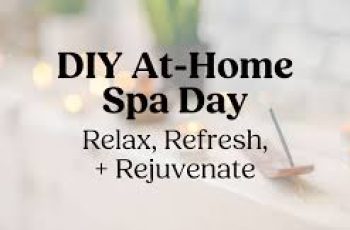
Resorcinol in Skin Care
Resorcinol is a skin lightening ingredient used for acne, sun spots and other dark spots on the skin, and hyperpigmentation disorders such as melasma.
Resorcinol lightens skin by preventing the production of melanin. It is a tyrosinase inhibitor.
Common uses
Resorcinol is most commonly used to treat conditions like:
Acne
Melasma
Post Inflammatory Pigmentary Alteration (PIPA).
You can find a selection of resorcinol and related products here!
To find the best matches for your regimen, make sure to shop based on your Baumann Skin Type.
Is it safe?
Resorcinol is used in a number of skin lightening and acne products. It has been safely used by dermatologists for many years for in office peels.
It is not advised to be used during pregnancy.
There is a chance of having a skin allergy to this ingredient which can result in redness or a rash.
Irritation can occur with strong concentrations of resorcinol. This is why it is most commonly used in chemical peels by dermatologists rather than in at home products.
Irritation and allergic reactions can cause inflammation that leads to hyperpigmentation- which means- when you use resorcinol to treat melasma and another forms of pigmentation, you can worsen melasma if used incorrectly.
Concerns
Some concerns associated with regular use of resorcinol are:
Skin irritation with resulting hyperpigmentation
Possible allergic reaction
The EWG rates resorcinol as a 7. (1 is low danger while 10 is high danger on the EWC scale).
Its use in cosmetics is restricted in Japan and Canada.
resorcinol during pregnancy
Is resorcinol safe to use during pregnancy?
No, it shouldn’t be used during pregnancy.
It has been shown to be found in urine when used topically and effects on the unborn fetus are not known.
There are other ways to treat skin conditions like melasma during pregnancy.
Can it be used orally?
Resorcinol should not be used orally for skin care uses. In fact, one death in Turkey was reported. (21)
Side-effects
If you have an allergy to resorcinol, you might expect
slight rash
redness
irritation on the applied area.
If used in too great a quantity or frequency, resorcinol products may cause irritation on applied areas.
Applying products containing this ingredient outside of one’s target dark spots may result in a slight “halo” effect around dark spots.
Overuse might result in “Post Inflammatory Pigmentary Alteration” (PIPA), a darkening of the skin following prolonged inflammation.
It is important to be sure the products are being applied in the correct amounts and at the right intervals.
benefits of resorcinol
Benefits
Resorcinol is a versatile product with a number of benefits. The most common benefits associated with its use are:
Treats hyperpigmentation
Eliminates bacteria on skin
Treats sun damage
Treats Melasma
Antiaging properties
Anti-aging
Resorcinol is good for anti-aging regimens because it has notable antioxidant, anti-inflammatory, and anti-glycation properties.
Antioxidants bind free radicals that can cause genetic damage to cells. Anti-inflammatories reduce the effects of oxidative stress from the sun and pollutants like dirt. Anti-glycation properties keep your skin safe from damage caused by sugars on the skin
Acne
Resorcinol directly eliminates acne-causing bacteria and has anti-inflammatory properties that make it useful as an acne treatment.
This ingredient is commonly used in peels by dermatologists, but some commercial products are available as well.
Skin lightening
Yes, Resorcinol does lighten your skin, however the effect is slow and subtle.
It does not “bleach” skin in any quick or extreme manner, but with time can improve dark spots.
This ingredient does not pose the risk of permanently lightening darker skin tones.
It is used to lighten dark spots to match surrounding lighter pigmented skin.
If you have melanated skin and are concerned about skin bleaching, check out how to get rid of dark spots on darker skin tones.
retinol
Is it like Retinol?
Resorcinol is in a different chemical compound family than retinol but they do share some similarities, namely:
tyrosinase inhibition
skin lightening
exfoliation
Retinoids are often combined with this ingredient in chemical peels.
Both ingredients can be used together in a skin care routine, depending on your Baumann Skin Type and regimen needs.
They can be combined in the same skin care products or used as separate products in different steps of the skin care routine.
Take the Quiz
resorcinol vs retinol
Vs Hexylresorcinol.
Hexylresorcinol is a derivative of resorcinol.
Resorcinol is stronger and more likely to cause skin irritation.
Another derivative similar to both of these compounds is phenylethyl resorcinol.
Resorcinol Products
There are a variety of products on the skin care market which include phenylethyl resorcinol and hexylresorcinol, but resorcinol is found primarily in chemical peels performed in medical offices. That being said, there are some great commercially available resorcinol products as well. Here are a few of our favorites.
To find the best skin care products for your skin type- make sure you shop by your Baumann Skin Type.


